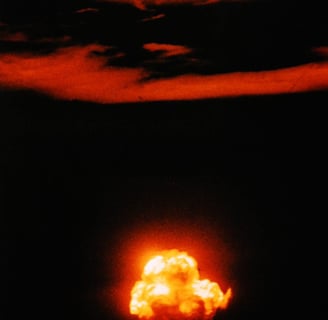Israel and the Nuclear Non-Proliferation Treaty
and why no-one talks about it
THE DARK SIDE


Background
One of the world's worst kept secrets is the presence of nuclear weapons in the Israeli military arsenal. In recent months both Israel's Heritage Minister and a member of the Knesset have suggested that the world's most powerful tools of destruction be used upon Gaza.
Strangely however, most countries have maintained a policy of neither confirming nor denying Israel's nuclear capabilities. This stance is rooted in several factors, the most significant being the Nuclear Non-Proliferation Treaty (NPT).
What's that?
The Nuclear Non-Proliferation Treaty is an international agreement aimed at preventing the spread of nuclear weapons and promoting disarmament. It was opened for signature in 1968 and currently has 191 states parties, including the United States and Israel. The NPT has three key pillars:
Non-Proliferation: The treaty prohibits non-nuclear-weapon states from acquiring nuclear weapons and requires nuclear-weapon states to work towards disarmament.
Disarmament: The treaty calls for negotiations on disarmament measures to achieve complete nuclear disarmament.
Peaceful Use of Nuclear Energy: The treaty recognises the right of states to develop nuclear energy for peaceful purposes.
While the United States is a strong ally of Israel, it has consistently taken the position of not publicly acknowledging Israel's nuclear weapons program. By not recognising the weapons, the US is able to maintain its commitment to the principles of the treaty. To acknowledge the weapons would require the signatories to the NPT to take measures against Israel's interests, or withdraw from the treaty altogether.
The Shimon Peres Negev Nuclear Research Center, often referred to as the "Dimona" nuclear facility is located in the middle of the Negev Desert. It is estimated that Israel has somewhere between 100 and 300 nuclear weapons at the facility although further details such as type and payload are unknown.
There is an expression in English that is said to based on an ancient Chinese curse:
"May you live in interesting times".
